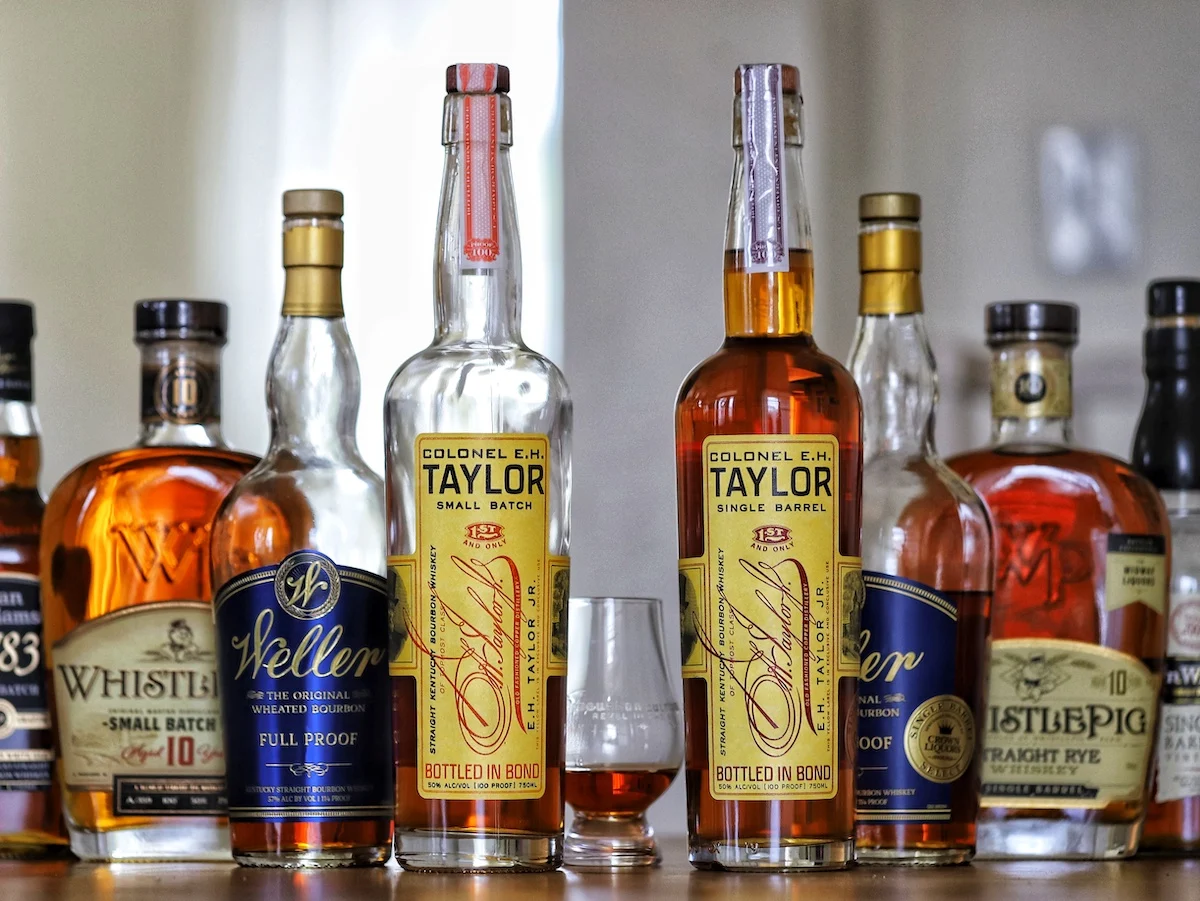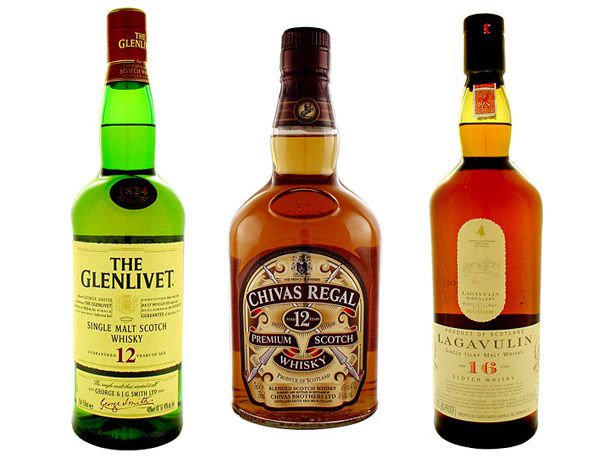Have you ever wondered what sets single barrel whiskey apart from blended whiskey? In this article, we will explore the key differences between these two popular types of whiskey. From the production process to the flavor profiles, we will uncover the unique characteristics that make single barrel and blended whiskey distinct. So, grab your favorite glass and join us as we dive into the world of whiskey and discover what sets these two styles apart.
What is the difference between single barrel and blended whiskey?
This image is property of www.seriouseats.com.
Definition of Single Barrel Whiskey
Single barrel whiskey, as the name suggests, is made from a single barrel of aged whiskey. Each barrel imparts its own unique flavors and characteristics to the final product, resulting in a whiskey with individuality and complexity. It is typically produced by hand-selecting specific barrels from the distillery’s warehouse, ensuring that only the highest quality whiskey is chosen. This meticulous process often leads to a more premium and expensive product.
Definition of Blended Whiskey
Blended whiskey, on the other hand, is a combination of multiple barrels of whiskey. Distillers carefully select and blend different types of whiskey to create a harmonious and consistent flavor profile. This allows for greater flexibility in terms of taste and consistency, as the master blender can adjust the proportions of each whiskey to achieve the desired outcome. Blended whiskey is generally more accessible in terms of price and widely available.
Raw Materials and Production Process
Both single barrel and blended whiskey can be made from various grains, such as corn, barley, rye, or wheat. However, the raw materials used and the production process may differ between the two.
Single barrel whiskey often emphasizes the use of high-quality grains and traditional methods. It is commonly associated with small-batch or craft distilleries that prioritize artisanal practices. These distilleries may use non-GMO, locally sourced grains, and employ traditional fermentation and distillation techniques to bring out the unique characteristics of each barrel.
Blended whiskey, on the other hand, may be produced in larger scale distilleries using a combination of grains and different distillation techniques. The focus here is on consistency and balancing flavors across various barrels and whiskey types. Distillers have the flexibility to experiment with different combinations of whiskies to maintain a steady flavor profile.
Aging Process
Aging is a crucial aspect of whiskey production that greatly influences its flavor and character. Both single barrel and blended whiskey go through an aging process, but there are some differences.
Single barrel whiskey is aged in a single barrel throughout its entire maturation period. This means that the flavors and characteristics of a single barrel are concentrated and may vary significantly from barrel to barrel. Each barrel has its own story to tell, contributing to the diversity and uniqueness of the final product.
Blended whiskey, on the other hand, is typically a combination of whiskies aged in multiple barrels. The individual barrels are aged separately, allowing for greater control over the flavor development and consistency. Blenders have the opportunity to adjust the flavor profile by selecting specific barrels and determining the optimal aging period for each whiskey.
This image is property of cdn.i-scmp.com.
Taste Profile
The taste profiles of single barrel and blended whiskey can differ significantly due to their distinct production processes.
Single barrel whiskey tends to showcase more pronounced and distinctive flavors. Each barrel imparts its own unique characteristics, resulting in a whiskey with greater depth and complexity. Depending on the barrel selection, you may encounter notes of caramel, vanilla, oak, spices, and various floral or fruity undertones. The flavor profile can vary significantly from one barrel to another, making it an exciting and unpredictable experience.
Blended whiskey, on the other hand, aims for a consistent flavor profile across each bottle. The master blender carefully selects and combines different whiskies to create a harmonious and balanced taste. You can expect a smooth and well-rounded flavor with integrated notes of grains, oak, caramel, and spices. The blending process often removes any harsh or uneven flavors, resulting in a more approachable and crowd-pleasing whiskey.
Consistency
Consistency is an important factor to consider when looking at single barrel and blended whiskey.
Single barrel whiskey is known for its individuality and uniqueness. Each barrel produces a distinct flavor profile that may significantly differ from other barrels. This means that if you enjoy a particular single barrel whiskey, there is no guarantee that the next bottle from the same distillery will taste exactly the same. While this brings excitement and variety to the experience, it may not be suitable for those seeking a consistent taste.
Blended whiskey, on the other hand, is designed to provide a consistent taste from bottle to bottle. Master blenders carefully craft a specific flavor profile that remains constant across each release. This ensures that consumers can confidently purchase a bottle of their favorite blended whiskey, knowing that it will taste consistently satisfying.
This image is property of thebourbonculture.com.
Price Range
The price range of single barrel and blended whiskey can vary greatly.
Single barrel whiskey is often regarded as a premium product due to its limited availability and the meticulous selection process. The cost of producing, aging, and hand-selecting specific barrels contributes to a higher price point. Depending on the distillery and the age of the whiskey, a bottle of single barrel whiskey can range from $50 to several hundred dollars or more.
Blended whiskey, on the other hand, tends to be more accessible in terms of price. The blending process allows larger-scale production and a wider distribution, leading to a more affordable price range. Depending on the brand and quality, a bottle of blended whiskey can range from $20 to $100.
Popular Brands
There are numerous popular brands of single barrel and blended whiskey to explore.
For single barrel whiskey, some well-known brands include Blanton’s, Buffalo Trace, Four Roses, and Elijah Craig. These distilleries are known for their attention to detail, hand-selecting barrels, and producing high-quality single barrel expressions.
As for blended whiskey, notable brands include Johnnie Walker, Chivas Regal, Jameson, and The Famous Grouse. These brands have mastered the art of blending, consistently delivering smooth and enjoyable whiskies that appeal to a wide range of palates.
This image is property of blog.kysupplyco.com.
Pairing and Serving Suggestions
Whether you choose single barrel or blended whiskey, both can be enjoyed in various ways and paired with different flavors.
For single barrel whiskey, its distinctive flavors often shine when sipped neat or on the rocks. The complexity and depth of the whiskey are best appreciated without dilution or interference from mixers. To enhance the tasting experience, consider serving single barrel whiskey in a tulip-shaped glass to concentrate the aromas.
Blended whiskey, on the other hand, is incredibly versatile and can be enjoyed neat, on the rocks, or in various cocktails. Its balanced and approachable flavor profile makes it a great choice for mixing in classics like Old Fashioned, Whiskey Sour, or even a simple whisky and soda. Experimentation is key to finding your preferred serving method for blended whiskey.
Preference and Personal Taste
Ultimately, the choice between single barrel and blended whiskey comes down to personal preference and taste.
If you are someone who enjoys exploring unique and complex flavors, and appreciates the craftsmanship and individuality of each barrel, single barrel whiskey may be the ideal choice for you. It offers a more exclusive and adventurous drinking experience.
On the other hand, if you value consistency, smoothness, and accessibility, blended whiskey provides a reliable and satisfying option. The master blender’s expertise ensures a harmonious blend that caters to a wider audience.
Whether you choose single barrel or blended whiskey, both offer their own distinct characteristics and taste profiles. It’s all about finding what resonates with your palate and enjoying the journey of exploring the world of whiskey. Cheers!
This image is property of mediavine-res.cloudinary.com.





